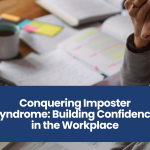When Trust is Broken: Managing Secret Recordings in the Workplace
The Fair Work Commission (FWC) recently ruled against an unfair dismissal claim after it emerged that the dismissed employee had secretly recorded a workplace conversation without their employer’s knowledge. This decision offers valuable insights for HR professionals navigating similar situations.
In this case, the FWC acknowledged that the employer’s poor communication around changes to the employee’s working hours was unfair. However, it was the secret recording presented as evidence by the employee that proved pivotal. The act of covertly recording the conversation was deemed serious misconduct, ultimately justifying the dismissal.
Why is this important?
The FWC highlighted that secret recordings severely damage the trust essential to a strong employment relationship. Even though the employer was unaware of the recording at the time of termination, the discovery of this act during the unfair dismissal proceedings significantly influenced the final judgement.
This ruling underscores that misconduct, even if discovered after dismissal, can validate an employer’s decision to terminate employment.
Handling Secret Recordings: Practical Tips for HR
Employees might feel tempted to record sensitive conversations to protect their rights, especially in times of workplace conflict. However, covert recordings often violate trust and, in some cases, may breach state laws.
Here’s what HR professionals should consider if faced with a similar situation:
- Investigate Thoroughly: Treat allegations of serious misconduct, such as secret recordings, with the same procedural fairness you would apply to any complaint. Use impartial investigators and follow established processes.
- Document Everything: Keep detailed records of all meetings, complaints, and investigations to ensure transparency and fairness.
- Review Policies: Assess whether your organisation’s policies need updates to address secret recordings, particularly within bullying, harassment, or performance management frameworks.
- Independent Decision-Making: Ensure an unbiased decision-maker reviews the findings to determine appropriate outcomes, whether mediation or termination.
Addressing the Root Cause
Beyond the immediate issue of misconduct, secret recordings are often a symptom of deeper cultural challenges within a workplace. Employees resorting to such measures may be signalling unresolved conflicts or a lack of trust.
HR professionals should focus on uncovering the reasons behind this behaviour. Could it reflect poor communication, unresolved disputes, or personal challenges? Taking the time to understand and address these root causes can help foster a culture of trust, collaboration, and mutual respect.
The Bigger Picture
Covert recordings, while problematic, can serve as a wake-up call for employers to assess and improve their workplace environment. Open communication, fair processes, and a proactive approach to conflict resolution are key to maintaining trust and confidence within teams.


